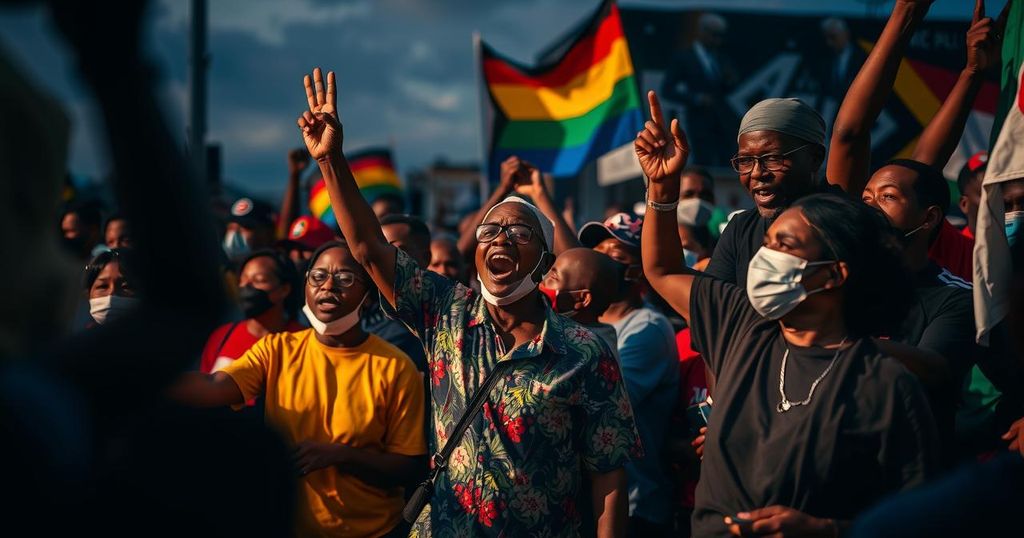Escalating Political Violence in Mozambique: Opposition Figures Assassinated Amid Election Disputes

Mozambique’s political tensions escalated with the assassination of two Podemos opposition members on Saturday, intensifying protests against disputed electoral results favoring the ruling Frelimo party. The victims were shot multiple times in Maputo, prompting human rights organizations to condemn the act as a cold-blooded murder. With the elections marred by reports of corruption and intimidation, the upcoming strike demonstrates significant unrest ahead of the official results announcement on October 24.
On Saturday, two individuals affiliated with Mozambique’s opposition party, Podemos, were tragically killed in an attack that has heightened tensions ahead of anticipated protests concerning the disputed election results. The victims, Elvino Dias, a lawyer for Podemos, and Paulo Guambe, a party representative, were shot multiple times while traveling in a vehicle in the Bairro da Coop neighborhood of Maputo, as reported by human rights organizations. The incident has been condemned by various rights groups, with the director of Mozambique’s Center for Democracy and Human Rights, Adriano Nuvunga, stating, “They were brutally assassinated [in a] cold-blooded murder. The indications [are] that around 10 to 15 bullets were shot, and they died instantly.” The backdrop to this violence is the recent election, in which the ruling party, Frelimo, appears to have secured a significant lead according to provisional results. Podemos, led by presidential candidate Venâncio Mondlane, has outright rejected these results and has called for a nationwide strike to commence on Monday. Despite Frelimo’s apparent advantage in all 11 provinces, concerns about the legitimacy of the election are prevalent among external observers. Reports detailing instances of vote-buying, intimidation of voters, and inflated electoral rolls within Frelimo-strongholds have raised red flags regarding the electoral process’s transparency and fairness. These issues have plagued numerous elections since the establishment of democratic governance in Mozambique in 1994, following decades of authoritarian rule. Official election results are expected to be released on October 24, and as the strike approaches, there are serious apprehensions that the situation could escalate into violence, as Mozambique’s security forces have previously responded aggressively to political protests.
The political landscape in Mozambique has been tumultuous, particularly following the introduction of democratic practices after Frelimo’s long-standing rule began in the early 1990s. Historically marred by allegations of electoral fraud, the integrity of electoral processes in Mozambique remains under scrutiny. The latest elections, held on October 9, have sparked fierce opposition from parties like Podemos, which argue that the ruling party’s dominance continues to suppress genuine democratic engagement. Human rights organizations often highlight the threats faced by opposition figures and the potential for violence during politically charged events. This particular incident underscores the mounting strain in Mozambique’s socio-political atmosphere, as activists call for transformative changes amid fears of repression. The commission of heinous acts against members of opposition parties raises critical questions about political safety, human rights, and the viability of Mozambique’s democratic institutions.
In summary, the assassination of two opposition figures in Mozambique illustrates the rising tensions surrounding the recent electoral process and the grim realities faced by political dissenters. The rejection of the provisional election results by Podemos highlights widespread dissatisfaction with the electoral system, compounded by historical issues of transparency and accountability. As the nation braces for protests, there are legitimate concerns regarding the potential for further violence and the implications for Mozambique’s democratic future.
Original Source: www.theguardian.com








